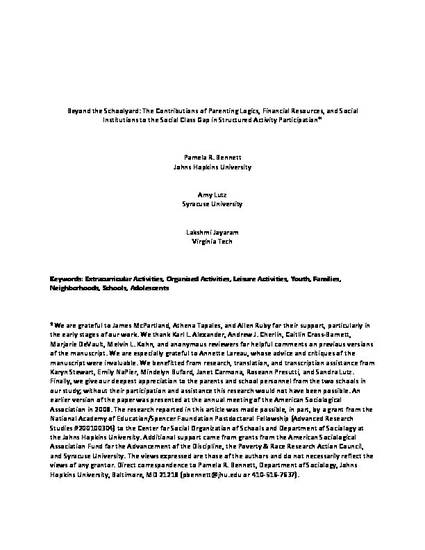
- Extracurricular Activities,
- Organized Activities,
- Leisure Activities,
- Youth,
- Families,
- Neighborhoods,
- Schools,
- Adolescents
We investigate cultural and structural sources of class differences in youth activity participation with interview, survey, and archival data. We find working
and middle‐class parents overlap in parenting logics about participation, though differ in one respect: middle‐class parents are concerned with customizing children’s involvement in activities, while working‐class parents are concerned with achieving safety and social mobility for children through participation. Second, because of financial constraints, working‐class families rely on social institutions for participation opportunities, but few are available. Schools act as an equalizing institution by offering low‐cost activities, allowing working‐class children to resemble middle‐class youth in school activities, but they remain disadvantaged in out‐of‐school activities. School influences are complex, however, as they also contribute to class differences by offering different activities to working‐ and middle‐class youth. Findings raise questions about the extent to which differences in participation reflect class culture rather than the objective realities parents face.
